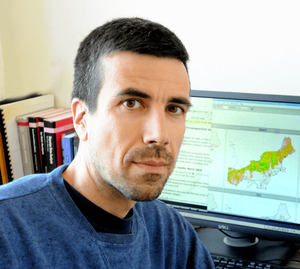
Christopher Paciorek
University of California, Berkeley
3:45 PM
127 Hayes-Healy
A reception will precede the event at 3:15 pm in 101A Crowley Hall
Building a time machine: using historical and paleo ecological data to reconstruct past vegetation in the midwestern U.S.
Reconstructing past vegetation patterns in space and time can help us to understand large-scale vegetation dynamics, past climate, and carbon storage opportunities, and simply satisfy our curiosity about the history of our planet. In this talk I'll describe a series of statistical approaches developed in the PalEON project to reconstruct vegetation in the midwestern U.S. using a variety of hierarchical statistical modeling strategies to relate various proxy data to underlying biological processes of interest. I'll start by describing the Public Land Survey, which provides gridded data on individual trees at half-mile resolution across the midwest. Using multinomial and zero-inflated spatial models, we use the data to estimate tree species composition and tree density/biomass at eight km resolution. We then use the gridded data products as calibration data for paleoecological reconstruction. First we use pollen data in a space-time statistical model to estimate how tree composition has changed over time over the past 2000 years. Then we use pollen data in a time series models to estimate changes in biomass over time at multiple locations over the past 8000 years, finding evidence for long-term carbon sequestration in forests before land clearance and logging in the past 200 years. This is joint work with the McLachlan lab in the Biology Department at Notre Dame.
View Poster